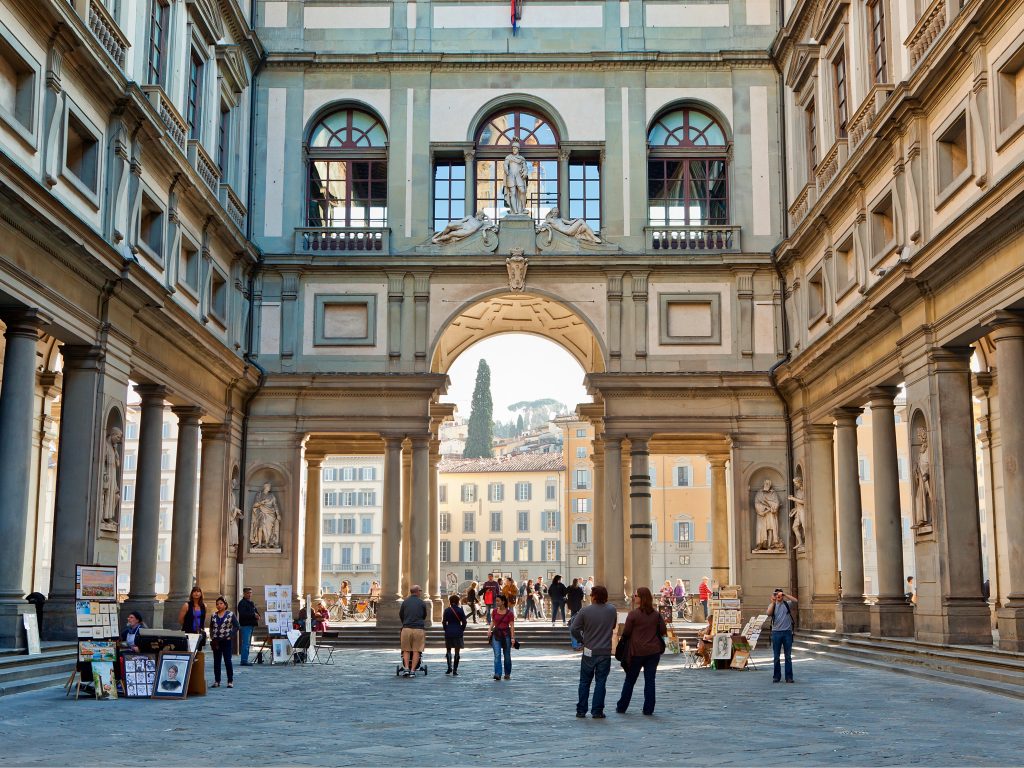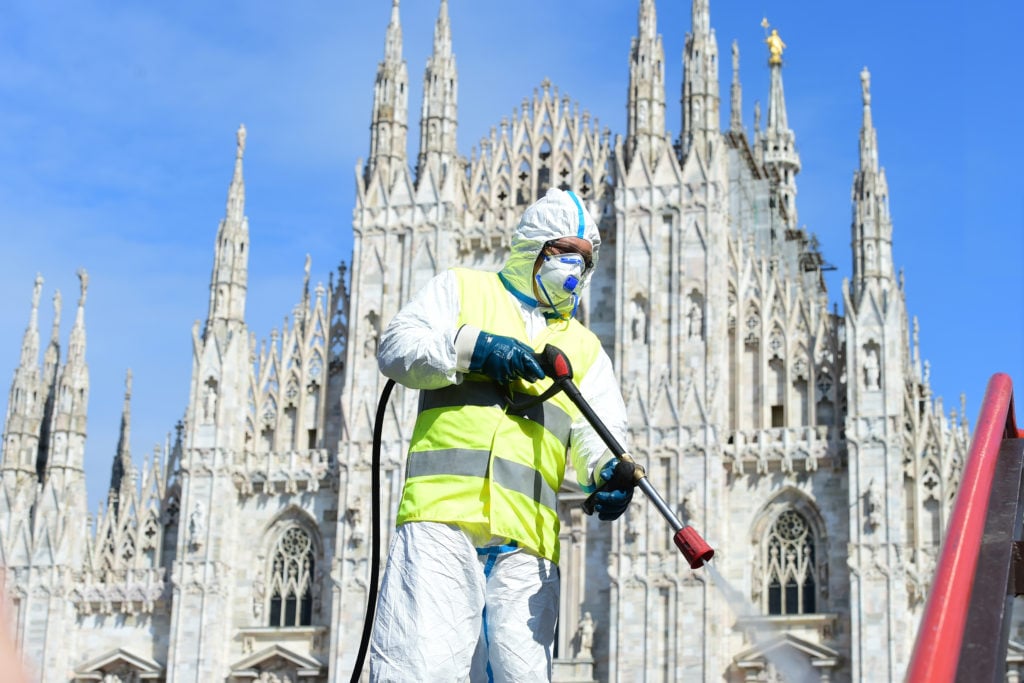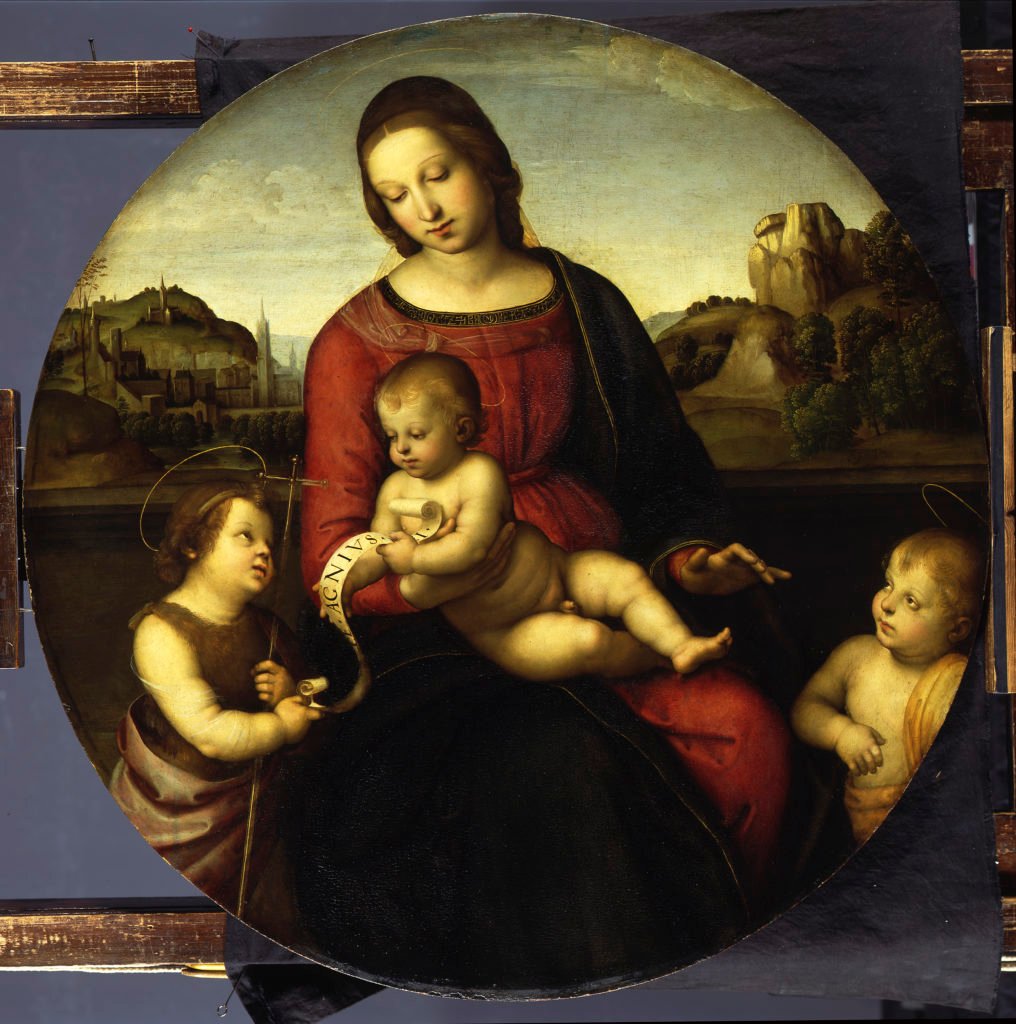Art World
Belgium and Italy Will Reopen Their Museums in May, but Keep Strict Social-Distancing Rules in Place
Museums around the world are looking to Europe to see how reopening plays out.

Museums around the world are looking to Europe to see how reopening plays out.

Sarah Cascone

As Italy and Belgium ease their lockdown restrictions, many of the nations’ museums will reopen in May.
Italy, the hardest-hit country in Europe, enacted a complete nationwide shutdown on March 10. Now, it is reintroducing normal activities in stages, starting with low-traffic business such as bookstores and dry cleaners, which were allowed to reopen on April 14.
The next phase is set to start on May 4, with museums slated to welcome visitors again on May 18. They must follow safety guidelines drawn up by the Italian Ministry for Cultural Heritage and Activities and Tourism, which requires that all tickets be purchased online and visitors must practice social distancing in the galleries.
In Belgium, a national commission formed to develop a reopening plan earlier this month announced that there would be three phases for reducing restrictions on businesses and public gatherings there. Museums are included in phase two, which is scheduled to begin May 18, so long that social-distancing measures are followed, reports the Brussels Times.

A worker sanitizes the Piazza del Duomo in Milan, Italy. Photo by Pier Marco Tacca/Getty Images.
As countries around the world look to the end of lockdown, world leaders must strike a careful balance, making sure to maintain some safety measures while easing into normal activity. If mass gatherings resume too quickly, countries run the risk of triggering a new wave of infections and once again overwhelming hospitals and medical resources.
“If we do not respect the precautions the curve will go up, the deaths will increase, and we will have irreversible damage to our economy,” warned Italian prime minister Giuseppe Conte in a press conference on Sunday. “If you love Italy, keep your distance.”
Ahead of Italy and Belgium, Berlin is reopening its museums on May 4, with precautions including plexiglass dividers at ticket booths, self-scanning tickets, reduced visitor capacity, and more frequent cleanings. Should early attempts to reopen museums be successful, other countries around the world will likely follow suit as soon as it is deemed safe to do so.
“Museums are like parks; spaces in which the individual experience can intertwine with the public space of being together. In the coming months, as a society, we face the challenge to find a new, positive balance between personal freedom and care for our relationship with others,” Bart De Baere, director of the Museum of Contemporary Art Antwerp, told the Art Newspaper, adding that the institution was “ready to serve as a test room for that post-lock down experience.”
The Antwerp museum will open on May 19, as will the Old Masters Museum, one of six institutions that make up the Royal Museums of Fine Arts in Brussels. Belgian guidelines mandate that face masks must be worn in public for all people over the age of 12; the government is providing one free mask per citizen.

Raphael, Terranuova Madonna. ©Staatliche Museen zu Berlin, Gemäldegalerie. Photo by Jörg P. Ander.
Museums also face a delicate juggling act when it comes to temporary exhibitions, often dependent on short-term loans of valuable artwork. The Galleria Borghese in Rome has delayed its planned April 29 opening of “Caravaggio: The Lute Player,” pairing six of its Caravaggio works with loans of two of his The Lute Player compositions, including one from the Hermitage in St. Petersburg, where the show is set to travel. The two museums are working to adjust the dates of the tour, according to a representative of the Borghese.
It remains to be seen whether Rome’s Scuderie del Quirinale will extend its highly anticipated blockbuster “Raphael: 1520–1483,” for which it pre-sold 60,000 tickets. The show was only open for three days before the country went into lockdown and it is scheduled to close June 2. The museum did not respond to inquiries regarding the possibility of extending the exhibition’s run to meet visitor demand.